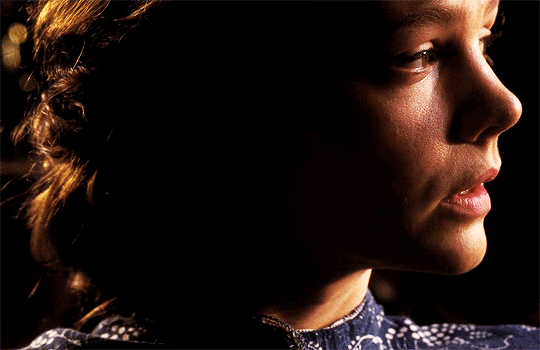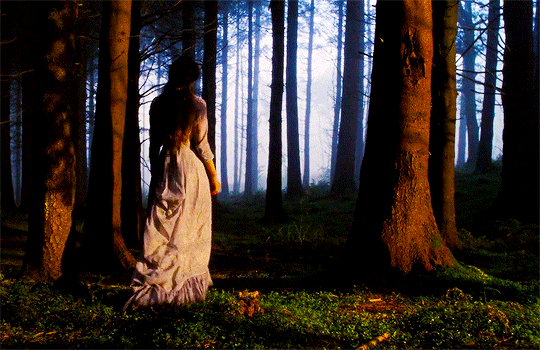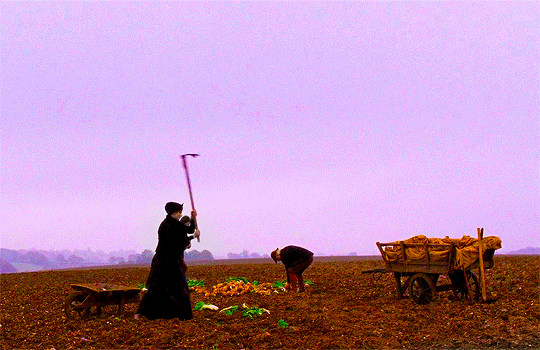"Since you insist upon asking me, Gally, I don't have the least use for the whole silly business. Leaves me entirely cold."
Don't wanna be here? Send us removal request.
Text
Only two ADHD tasks
1) this task will take me five minutes but I couldn’t possibly do it because I have an appointment in six hours
2) this task will take five hours but I’ll just do it first thing in the morning before I leave
21K notes
·
View notes
Text
Did you know that you can waste your free time by not knowing which activity to do so you do none of them
22K notes
·
View notes
Text









AGATHA CHRISTIE'S POIROT: HOW DOES YOUR GARDEN GROW? (1991)
dir. brian farnham
184 notes
·
View notes
Text
Nah that’s just my emotional support intellectual equal unmarried gentleman
224 notes
·
View notes
Text
North and South, or A Series of Relentless (and Mostly Unfortunate) Coincidences:
Mr Hale drops the news about leaving the church/Helstone on the same day Mr Lennox proposes to Margaret.
Mrs Hale's illness gets much worse on the same evening of the Thorntons' dinner party.
Over the space of just three days Margaret has to go through the riot, Mr Thornton's proposal, and Bessy's death.
Mr Thornton happens to ride by Outwood Station just in time to see Margaret with Fred; he's the magistrate called in to hear Leonards' deposition, and happens to step out of the house in Crampton at the same time the police inspector (who owes him his place in the force) is coming back to question Margaret. One of his servants also happens to be engaged to Leonards.
Margaret and Mr Hale are visiting Higgins when they bring in Boucher's body.
Margaret is visiting Higgins when Mr Thronton comes to offer him work, and he enters just as she's saying she's disappointed in him.
Mr Thornton (on his return from Havre via Helstone) happens to be on the same train as Mr Bell travelling to Milton to break the news of Mr Hale's death to Margaret.
12 notes
·
View notes
Photo









Men thin away to insignificance and oblivion quite as often by not making the most of good spirits when they have them as by lacking good spirits when they are indispensable.
Far from the Madding Crowd (2015) Dir: Thomas Vinterberg
2K notes
·
View notes
Text
“The weather is unusually hot for February, but then, of course, it is July.”
— John Finnemore
1K notes
·
View notes
Text
the procrastinator’s mind will invent distractions you’ve never conceived of in order to avoid tasks even a dog could do.
#I am not procrastinating / I am simply wisely waiting#in case some magic pixies come / and do it in the night
43K notes
·
View notes
Text
John "now I love and will love" Thornton and Margaret "he cannot prevent me from respecting him" Hale
21 notes
·
View notes
Text

It’s this time of year again. 😕
59 notes
·
View notes
Text
Another thing I love about that scene is that part where Poirot just. Doesn't say a word and just. USES HIS EYES TO GET WHAT HE WANTS
Pretty PLEASE won't you let me inspect that dead woman's apartment just a little TINY bit more Chief Inspector Japp?? No?? Well. What if I...




AND JAPP IS JUST LIKE UGH FINE IF YOU QUIT DOING THAT YOU CAN DO WHATEVER YOU WANT I DON'T CARE I'M LEAVING


AND THEN BOTH POIROT AND HASTINGS SMILE A PRIVATE LITTLE SMILE ABOUT IT??

Lads. I love this SHOW.
114 notes
·
View notes
Text
I'm about halfway through North and South, by Elizabeth Gaskell,* and I so enjoy how medium-terrible every parent in it is. There are no Mary Sues in this novel, and if any side-character is one-note, that note is off-key.
Dear Margaret's parents primarily have a completely inappropriate idea of boundaries. From the moment she comes home to Helstone as an 18-year-old, they're complaining to her about each other and using her to accomplish things the other parent wouldn't approve of.
Mrs. Thornton has massive cognitive dissonance about her own seemingly-useless daughter, when she has such high standards of everyone else. And she rules her son's home in an unconsciously rigid way that I find very realistic. You might see that in any household where the adult children have never lived apart from the matriarch.
Mrs. Shaw, Margaret's Aunt, has never stopped complaining about her own choice to marry rich, but she also never looked for love once her elderly husband kicked it. She just seems to enjoy complaining.
Boucher cries poor-mouth to exaggeration and breaks ranks with the Union to incite violence.
Nicholas Higgins is the most decent, but I'm not sure he provided enough social education to "slatternly" Mary.
And yet, Boucher aside, everyone is kind. Mrs. Shaw half-raised Margaret for her sister and put her own daughter's happiness above any concern about reputation. Mrs. Thornton doesn't like Mrs. Hale or Margaret but freely, materially helps them with illness and injury care. Higgins suffers visitors to his home (not something he is accustomed to) and answers many ignorant/vexxing questions from Margaret for the sake of his ailing daughter. And the Hales live to help the less fortunate.
It's a fun book with great characters; I recommend it so far!
*I signed up to North and South Weekly with the best of intentions and utterly failed to keep up with it, but boy am I absorbed now!
115 notes
·
View notes
Text
And there was no tone of regret, or emotion of any kind in the voice with which he said good-bye; and the offered hand was taken with a resolute calmness, and dropped as carelessly as if it had been a dead and withered flower. But none in his household saw Mr. Thornton again that day. He was busily engaged; or so he said.
Elizabeth Gaskell, North and South
17 notes
·
View notes
Text

“Spring and Fall” by Gerard Manley Hopkins (1985)
43 notes
·
View notes
Text
once i master my adhd and stop believing that i’m waiting for my life to begin and accept what i cannot change and finish cleaning my room and stick to a productive schedule and drink enough water and meditate and organize all the important papers in the paper pile and start being consistent and say the nice things to myself and gain confidence its OVER for you bitches
27K notes
·
View notes
Photo








endless list of my favourite couples:
19. Livy & Ray (the magic of ordinary days)
258 notes
·
View notes